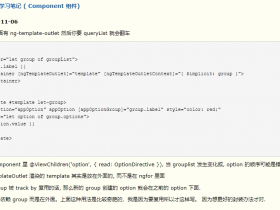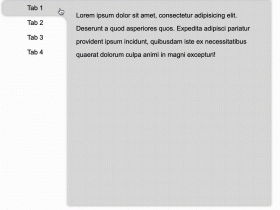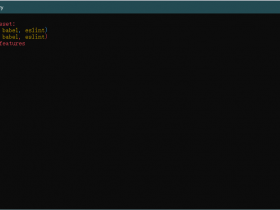- A+
如何去掉vue的url地址中的#号?及其原理?
如何去掉vue的url地址中的#号?
import Vue from 'vue'; import VueRouter from 'vue-router'; Vue.use(VueRouter) // 1. 定义一些路由 // 每个路由都需要映射到一个组件。 const routes = [ { path: '/home', component: ()=> import('../views//home.vue') }, { path: '/about', component: ()=> import('../views/about.vue') }, ] const router = new VueRouter({ mode: 'hash', //默认是hash模式,url是带#号的 // mode: 'history', //history模式url不带#号 routes }) export default router hash模式实现原理
hash模式主要是根据url的hash值来跳转不同的路由页面。
采用hash模式的路由模式中,url后面有一个#,#后面包括#就是此路由的hash值,hash模式背后的原理是onhashchange事件,可以在window对象上监听这个事件
vue中hash模式的原理就是通过监听hash值的变化来匹配不同的组件,进而来重新渲染视图。
优点
- 兼容性强,兼容性达到了IE8
- 除发送ajax和资源请求外不会发送其他多余请求
- 改变#后的路径、不会自动刷新页面
- 无需服务端进行配合
缺点
- 访问路径上包含#,不美观
- 对于需要锚点功能的需求会与当前路由机制发生冲突
- 重定向操作时,后段无法获取url完整路径。
监听onhashchange事件案例:
srcviewshome.vue
<template> <div> home <button @click="handerHref">跳转</button> </div> </template> <script> export default { name: 'home', data(){ return { } }, created(){ }, mounted() { window.addEventListener('hashchange',this.onhashchange) }, computed:{ }, methods:{ handerHref(){ window.location.href = "http://localhost:8080/#/about" }, onhashchange(e){ console.log(e.oldURL,'home'); console.log(e.newURL); console.log(location.hash); } } } </script> <style scoped> </style> srcviewsabout.vue
<template> <div> about </div> </template> <script> export default { name: 'about', data(){ return { } }, created(){ }, mounted() { window.addEventListener('hashchange',this.onhashchange) }, computed:{ }, methods:{ onhashchange(e){ console.log(e.oldURL,'about'); console.log(e.newURL); console.log(location.hash); } } } </script> <style scoped> </style> history模式实现原理
优点
- 符合url地址规范, 不需要#, 使用起来比较美观
- 可以使用history.state获取完整的路由信息
- 后端可以获取到完整的路由信息
缺点
- 兼容性只到IE10
- 改变url路径后、会重新请求资源。
- 若访问的路由地址不存在时、会报404,需服务端配合支持重定向返回统一的404页面。
history路由中我们使用onpopstate事件函数来监听history路由的变化,但是popstate事件函数只能监听到history.go、forward、back的切换路由方式,但是它不能够监听到pushState添加历史记录(就是在页面中点击某个a标签进行跳转的方式,点击页面顺序:a->b->c,记录的历史记录中a、b、c都存在,而replaceState则不同)、replaceState(点击页面顺序:a->b->c,记录的历史记录中只有a->c,即用c代替了b记录,b记录被删除了)切换路由的方式。
监听popstate、pushState、replaceState事件案例:
srcviewshome.vue
<template> <div> home <button @click="handerHref">跳转</button> </div> </template> <script> export default { name: 'home', data(){ return { } }, created(){ }, mounted() { window.addEventListener('hashchange',this.onhashchange) }, computed:{ }, methods:{ handerHref(){ window.location.href = "http://localhost:8080/#/about" }, onhashchange(e){ console.log(e.oldURL,'home'); console.log(e.newURL); console.log(location.hash); } } } </script> <style scoped> </style> srcviewsabout.vue
<template> <div> about <button @click="handerBack">返回</button> </div> </template> <script> export default { name: 'about', data(){ return { } }, created(){ }, mounted() { window.addEventListener('hashchange',this.onhashchange) //hash模式跳转页面触发onhashchange事件 window.addEventListener("popstate", this.onpopstate) //popstate事件函数只能监听到history.go、forward、back的切换路由方式,但是它不能够监听到pushState添加历史记录 // 但是它不能够监听到pushState添加历史记录(就是在页面中点击某个a标签进行跳转的方式,点击页面顺序:a->b->c,记录的历史记录中a、b、c都存在,而replaceState则不同)、replaceState(点击页面顺序:a->b->c,记录的历史记录中只有a->c,即用c代替了b记录,b记录被删除了)切换路由的方式 // 对于pushState、replaceState需要通过函数重写的方式进行劫持,也就是说我们重写pushState和replaceState // 但是我们一般都是pushState来跳转链接,是通过this.$router.replace()来触发;而pushState()是通过this.$router.push()来触发 // 重写pushState方法 const rawPushState = window.history.pushState window.history.pushState = function (...args) { rawPushState.apply(window.history, args) console.log("终于监视到pushState了"); } // 重写replaceState方法 const rawReplaceState = window.history.replaceState window.history.replaceState = function (...args) { rawReplaceState.apply(window.history, args) console.log("终于监视到replaceState了"); } }, computed:{ }, methods:{ handerBack(){ // window.location.reload() //刷新 // window.history.go(1) //前进 // window.history.go(-1) //后退 // window.history.forward() //前进 // window.history.back() //后退+刷新 this.$router.replace('/home') }, onhashchange(e){ console.log(e.oldURL,'about'); console.log(e.newURL); console.log(location.hash); }, onpopstate(e){ console.log(e,'popstate') } } } </script> <style scoped> </style> hash和history的区别
hash模式的url后跟hash值#…,它的原理就是使用window.onHashChange来监听hash值的改变,一旦发生变化就找出此hash值所匹配的组件,进而将组件渲染到页面中。但是hash模式这种带hash值的url是非常丑的,项目中也很少用hash模式。
history模式中的url是以/user这种格式,比较常见,它的原理是通过window.onpopstate来监听路由变化,进而匹配不同的组件来渲染出来。




